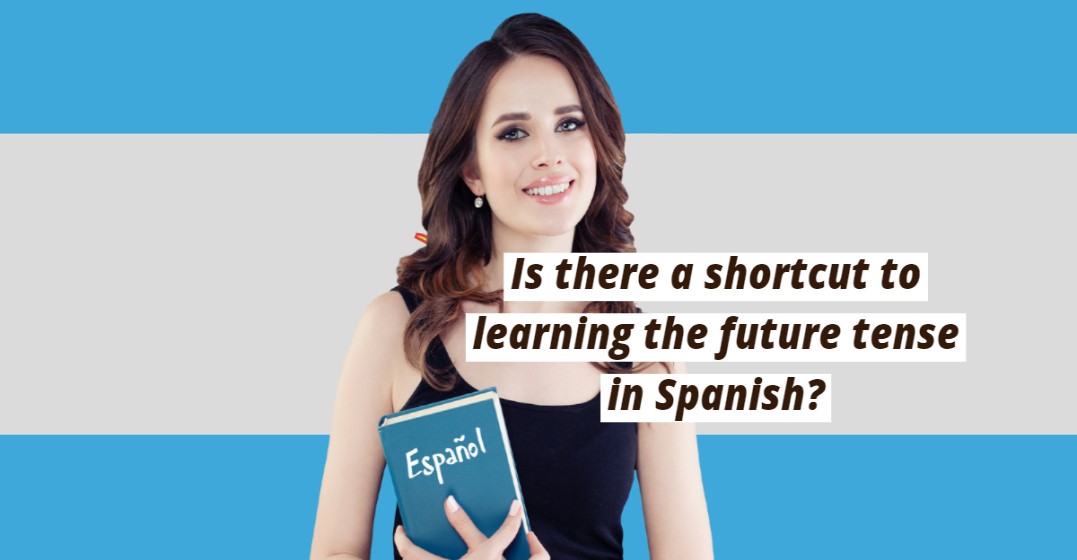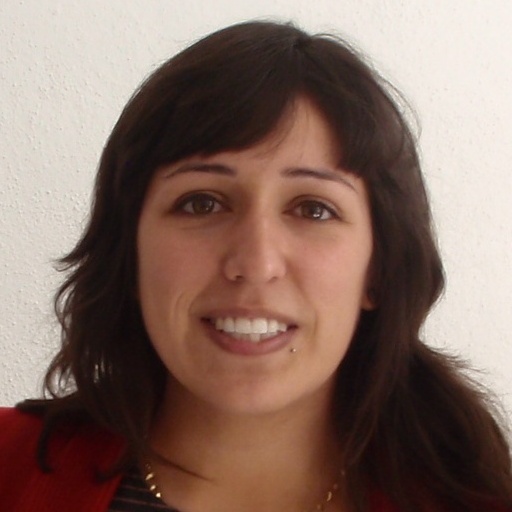Talking about the future in Spanish – regular and irregular future

For native English speakers, learning Spanish tenses is a wild ride. Not only does the Spanish language use more distinct tenses, but Spanish grammar has so many rules.
Last week we looked at how to speak about the past in Spanish. This week, I want to share how easy it is talking about the future in Spanish. In fact, I learned a shortcut. Here is my easy trick for talking about the future in Spanish, for both regular and irregular verbs.

Learn Spanish with Lingoda
How it works

My journey of speaking Spanish
My Chilean mum immigrated to the United States in the early 1970s. Times were different. Being bilingual wasn’t considered an asset the way it is today.
Negative experiences in her professional life in the U.S. made my mother adamant that my older brother and I would grow up speaking perfect English. Though my American dad was fluent in chileno, conversations in our house were entirely in English.
Still, I’ve been hearing Spanish since I was a child. I called my abuelitos y tías (grandparents and aunties) every Sunday since I was 5 years old. I would tell them about my week, what I was learning in school, and send them abrazos grandes or big hugs by phone.
Despite being functionally bilingual, I still needed to learn Spanish grammar.
The future tense in Spanish
I hate to admit it, but I didn’t even learn English grammar very well. I never fully understood the proper tenses. I passed exams the way most native speakers do: I listened and decided what sounded correct by ear.
My ear worked because I was immersed in English. When I went to school and started taking Spanish classes at age 12, I was shocked to realise that I didn’t have the same ear for Spanish. It was awful. I could use the incorrect word and it didn’t even sound wrong.
Not only could I not identify what tenses were used by the context, but I also couldn’t hear which tense was correct. The future tense in Spanish was especially complicated. There was the subjunctive, the conditional, and the simple perfect tense. Which one made sense?
On a phone call with my family in Chile, my goal was to have a conversation, not deal with difficult conjugations. Though I studied properly for school, I found an easy trick that helped me to talk about the future in Spanish conversation in a very simple way.

Learn Spanish with Lingoda
How it works

My trick for the future tense: Ir a + Verbo Infinitivo
My easy trick for speaking about the future in Spanish is to always use the phrase ir a + verbo infinitivo which translates as “going to...[infinitive form of the verb]”.
We do this all the time in English. Instead of saying “Tomorrow I will tidy the house,” we often say, “Tomorrow I am going to tidy the house.” The same thing works in Spanish. Plus, the verb “to go” or ir is one of the very first that we learn in Spanish lessons.
When you use ir a + verbo infinitivo, you only need the present tense form of ir. The second verb is the non-conjugated form ending in –ar, -er, or –ir.
Here are the conjugations for Latin American usage with some phrases I used to say to my family. They should be easy to reproduce for beginning Spanish speakers.
- (Yo) voy a... tomar una clase de álgebra. - I am going to take an algebra class.
- (Tú) vas a... perder el número. - You are going to lose the number.
- (Ella) va a... jugar fútbol este fin de semana. - She is going to play football (soccer) this weekend.
Of course you will eventually learn to use the proper future tense like I did. Until then, feel free to use my shortcut.
How to use Spanish irregular future tense
The future tense in Spanish is used to talk about events in the future. All regular and irregular verbs conjugated in the future use the same endings.
Regular verbs in the future tense add endings to the infinitive form of the verb. What differs with the irregular future tense words in Spanish is that they change that infinitive form of the verb into an irregular root word.
Let’s look first at the verb hablar, to talk.
| Subject | Conjugated verb |
| yo (I) | hablaré |
| tú (you) | hablarás |
| él/ella (he/she) | hablará |
| usted (you; formal) | hablará |
| nosotros (us) | hablaremos |
| ellos/ellas (they) | hablarán |
| ustedes (you all; plural) | hablarán |
Note: There are two different forms of the future tense in Spanish. One is the simple future, which you see above. The other is the periphrastic future, which is ir + infinitive. To learn more about that shortcut form, check out this easy trick to the future tense.
Irregular verbs in future tense in Spanish: 3 conjugation rules
Learning how to conjugate irregular verbs is a lot of work! You need to memorize both rules and different spellings at the same time. On the bright side, though, irregular future tense words in Spanish all use the same endings as regular future tense verbs.
Let’s jump into the three categories of irregular verbs in the future tense.
Irregulars: -er and -ir verbs
This category is for -er and -ir verbs only. These verbs drop the -e or -i from the infinitive, add a -d, add back the original -r and add the future endings.
For tener (to have), the progression goes like this: tener > ten + -d + -r > tendr + future ending.
| Subject | Conjugated verb: tener (to have) |
| yo (I) | tendré |
| tú (you) | tendrás |
| él/ella (he/she) | tendrá |
| usted (you; formal) | tendrá |
| nosotros (us) | tendremos |
| ellos/ellas (they) | tendrán |
| ustedes (you all; plural) | tendrán |
Other irregular verbs follow this same rule:
- Poner (to put): pondré, pondrás, pondrá, pondremos, pondrán
- Valer (to be worth; to cost): valdré, valdrás, valdrá, valdremos, valdrán
- Salir (to leave): saldré, saldrás, saldrá, saldremos, saldrán
- Venir (to come): vendré, vendrás, vendrá, vendremos, vendrán
Irregulars: -er verbs only
This category is for certain -er verbs only. These verbs drop the -e from the infinitive, keep the -r and add the future endings.
For poder (to be able to), the progression goes like this: poder > pod + -r > podr + future ending.
| Subject | Conjugated verb: poder (to be able to) |
| yo (I) | podré |
| tú (you) | podrás |
| él/ella (he/she) | podrá |
| usted (you; formal) | podrá |
| nosotros (us) | podremos |
| ellos/ellas (they) | podrán |
| ustedes (you all; plural) | podrán |
Other verbs that follow this rule:
- Caber (to fit): cabré, cabrás, cabrá, cabremos, cabrán
- Haber (to have): habré, habrás, habrá, habremos, habrán
- Saber (to know): sabré, sabrás, sabrá, sabremos, sabrán
- Querer (to want): querré, querrás, querrá, querremos, querrán
Irregulars with no rules
There are some verbs that do not follow a set rule. They are completely irregular. But they still use the same regular endings! These are important verbs that you will use often.
| Subject | Conjugated verb: decir (to say) | Conjugated verb: hacer (to do) | Conjugated verb: satisfacer (to satisfy) |
| yo (I) | diré | haré | satisfaré |
| tú (you) | dirás | harás | satisfarás |
| él/ella (he/she) | dirá | hará | satisfará |
| usted (you; formal) | dirá | hará | satisfará |
| nosotros (us) | diremos | haremos | satisfaremos |
| ellos/ellas (they) | dirán | harán | satisfarán |
| ustedes (you all; plural) | dirán | harán | satisfarán |
Examples of irregular Spanish verbs in future tense
Let’s look at a few example sentences using these irregular verbs.
| English | Spanish |
| Tomorrow we will leave early. | Mañana saldremos temprano. |
| He will come soon. | Vendrá pronto. |
| They won’t fit in the car. | No cabrán en el coche. |
| I will know the answer tomorrow. | Sabré la respuesta mañana. |
| Will you tell me the story later? | ¿Me contarás la historia más tarde? |
| They will make the food for the party. | Harán la comida para la fiesta. |
The future is now
Now you know how to conjugate irregular future tense verbs in Spanish in a few different formats. It will take time to learn the rules and memorize the irregular verbs.

Learn Spanish with Lingoda
How it works














